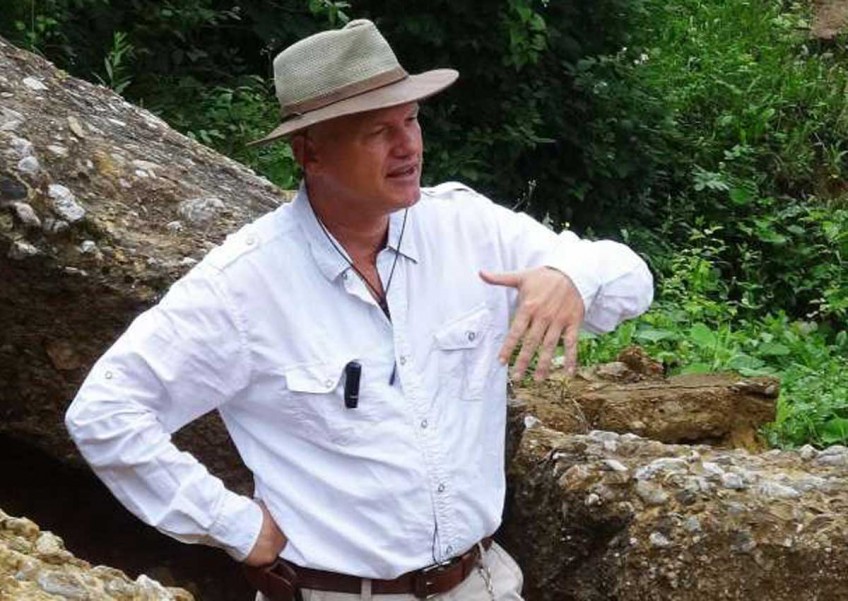Pyramids exist in Bosnia: Archaelogist

Despite his many critics, maverick archaeologist Sam Osmanagich stands by his claims that he has uncovered not one, but five structures which he says are pyramids in Visoko in Bosnia-Herzegovina.
Dr Osmanagich, who earned his doctorate on the history of civilisations at the University of Sarajevo in 2008, was in Singapore recently for a conference, where he spoke about his work on pyramids.
The 55-year-old claims that he has discovered the "biggest complex of pyramidal structures in the world" comprising five pyramids, all connected by underground tunnels.
The largest of these, he says, is the Pyramid of the Sun, which is more than 220m high.
If his claims are true, this would make the pyramid taller and possibly bigger than the 147m-tall Great Pyramid built by Pharaoh Khufu in Giza, Egypt, now recognised as the largest in the world.
On his work, Dr Osmanagich says: "You have not only the first pyramids in Europe, but also the biggest on the planet. This is shocking to many archaeologists as most people like to keep the status quo when you come up with new and progressive ideas."
About a decade ago, he set up a non-profit organisation called Archaeological Park: Bosnian Pyramid of the Sun Foundation to carry out excavations at the site in Visoko.
He says that since then, he has unearthed a network of underground tunnels and found man-made structures there and has also found fossilised leaves tested scientifically to date back 34,000 years, supporting his claim that the Pyramid of the Sun is the oldest around.
But experts are sceptical. They believe the pyramids are nothing more than a cluster of natural hills.
Archaeology professor Curtis Runnels from Boston University, for instance, says that he is "not persuaded" by the arguments in favour of the so-called pyramids because cultures capable of producing such "colossal buildings" came about in that region only about 2,500 years ago.
Even then, they did not construct buildings of that size and form, he told The Straits Times.
"Early prehistoric cultures, including village farmers of the Neolithic (back to 9,000 years ago), and before them Stone Age hunters and gatherers, did not have populations large enough or social structures organised in ways that would have permitted the creation of pyramids on a large scale," he says. He adds that geologists have attributed the pyramidal shape of the "natural hills" to wind and water erosion. "Pyramidal shapes offer the least resistance to such forces, and are common forms in nature," he says.
There are also concerns that Dr Osmanagich's activities may have caused archaeological damage.
Says Dr Brian Stewart, assistant curator at the Museum of Anthropological Archaeology at the University of Michigan: "There were very worrying reports that he and his team have essentially sculpted the sides of these natural hills into something they think resembles pyramids, in the process stripping away sediment which contains layers of actual archaeology from mediaeval and earlier periods."
Regardless of the doubt cast on his work, Dr Osmanagich says he is not going to give up. He hopes to dig further underground so that he can get closer to the claimed pyramids and find out who built them.
He says: "Egyptian pyramids have been investigated for 200 years by Egyptologists but still major questions are not answered."

This article was first published on August 14, 2015.
Get a copy of The Straits Times or go to straitstimes.com for more stories.